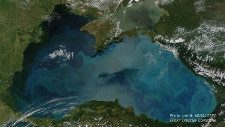Crystallizing Faultlines: Turkey’s Democratic Durability At Risk
Ozan Serdaroglu
In the aftermath of the anti-governmental Gezi demonstrations of May-June and the conclusion of the Ergenekon trial earlier this month, clear fault-lines are crystallizing in the Turkish political landscape, with parties reinforcing the divide by shoring up their respective core support bases. This trend brings with it the attendant danger of a more polarized Turkey and ushering in an ineffective political system where political elites are unable to build consensus among diverging social demands. Considering the possible negative impacts of this situation on Turkey’s democratic durability, the EU would do well to recognize the new political reality emerging in Turkey by further engaging with the country, not turning away from it.
Related Publications
-
ISDP Annual Report 2023
ISDP’s Annual Report for the year 2023. We look back on 2023, a year in which tensions and conflicts captured the strategic space in ISDP’s focus areas, making headlines around […]
-
A New Spring for Caspian Transit and Trade
Major recent shifts, starting with the Taliban victory in Afghanistan and Russia’s war in Ukraine have led to a resurgence of the Trans-Caspian transportation corridor. This corridor, envisioned in the […]
-
Turkey’s Opposition Can’t Win Without the Working Class
Kemal Kilicdaroglu, the leader of Turkey’s main opposition Republican People’s Party (CHP), has a realistic chance of defeating President Recep Tayyip Erdogan in the upcoming presidential election on May 14. […]
-
Promise And Peril In The Caucasus
America’s national security bureaucracy separates the Caucasus and the Middle East into different bureaus, with Central Asia in yet another office. This is part of the reason the U.S. has […]



